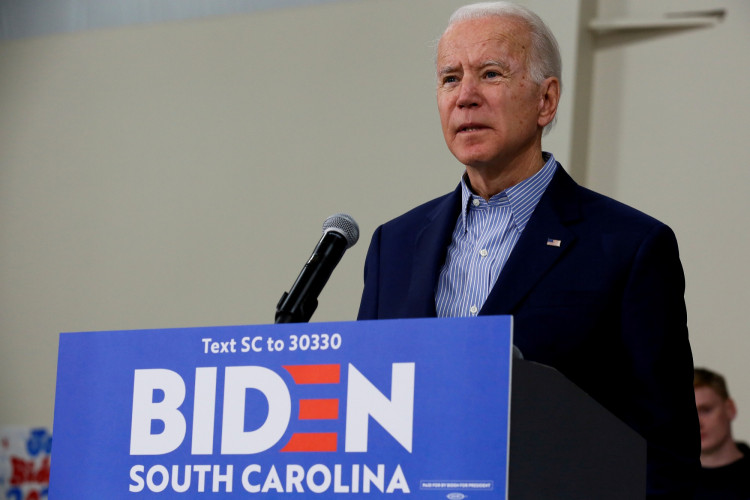Former U.S. vice president and Democratic Party presidential candidate Joe Biden can be relied on to improve America's badly damaged relationship with China, according to former U.S. ambassador to China Max Baucus.
Baucus is fully confident America's relationship with China will improve when Biden wins the presidency. Baucus served as ambassador from 2014 to 2017 under the Obama administration.
"It's probably not going to get worse, maybe it will reach a bottom here," according to Baucus in his analysis of a potential Biden win.
Relations with China will get better because Biden is "much more predictable," Baucus said. Biden is also expected to use regular diplomatic channels and practice quiet diplomacy, unlike President Donald Trump.
Baucus said Biden "knows that to get deals with countries, you have to not criticize them. You can't force them to dig in their heels publicly, you got to negotiate."
Some tensions with China will remain, however. China is, after all, the top strategic competitor to the U.S. in the economic, military and political spheres.
"It does not mean there will not be significant tension between the United States and China. There will be – continue to be – (tensions) even with a Biden presidency," according to Baucus.
Biden will also have to figure out whether to enforce Trump's phase one trade deal with China and the necessity of a phase two agreement.
The phase one trade deal signed between Trump and president Xi Jinping in Washington DC on January 15 was meant as a temporary ceasefire in the trade war launched by Trump against China in early 2018. It's supposed to be followed-up by a phase two deal to be undertaken by the next U.S. president.
Trump, however, is focusing on staving-off almost certain defeat in November, and China is struggling to fulfill its part of the deal due to the huge economic damage caused by COVID-19. These grim realities mean nothing of importance can be expected from both trade deals until after the November general election in the United States, contends Baucus.
Baucus asserts the "odds are diminishing" that China will be able to fulfill its commitments to large purchases of goods and services agreed to in the deal.
"There will be a lot of rhetoric back and forth, but I don't know that there is going to be a lot of substantive, meaningful agreements for change," said Baucus.
He described U.S. and China relations as having plunged into a "big abyss." He contends that more talks are required to ease Trump's trade war even further. He believes the tensions created and fostered by Trump will remain even if Biden becomes president.
Phase One requires China to boost its purchases of U.S. goods and services by $200 billion from 2020 to 2021 compared to the 2017 levels of $130 billion in goods and $56 billion in services. This provision will double U.S. exports to China.
For its part, the U.S. will slash import tariffs to 7.5% from 15% on $120 billion worth of Chinese goods effective February 14. The 25% U.S. levy on $250 billion worth of Chinese goods will remain. Chinese imports worth $370 billion will see no reduction to their tariffs. The U.S. also agreed to suspend an additional $160 billion in tariffs.
On the other hand, China suspended its planned retaliatory tariffs. It also reduced tariffs on $75 billion worth of goods on February 5.
China also promised to strengthen intellectual property protection and limit pressure on foreign companies to transfer technology to gain market access. It pledged to improve access to its financial market for U.S. financial institutions.
Phase one critics in both the U.S. and China keep questioning whether any of the deal's terms are enforceable. Some American political pundits criticize phase one as another of Trump's political stunts aimed at boosting his reelection bid






